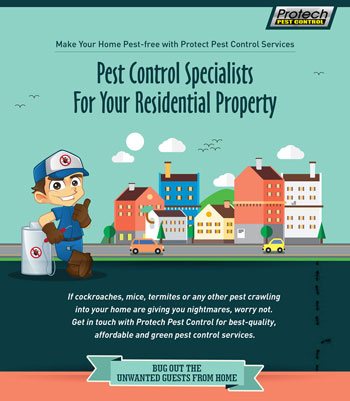Past The Spray: Exploring Advanced Techniques Used By Parasite Control Professionals
Past The Spray: Exploring Advanced Techniques Used By Parasite Control Professionals
Blog Article
Uploaded By-Andrews Raahauge
Are you tired of relying solely on sprays to take care of bugs in your home or work environment? While sprays can be effective, pest control professionals have actually created innovative techniques that exceed merely splashing chemicals.
These techniques not just offer extra reliable and lasting solutions, yet likewise concentrate on reducing making use of harmful chemicals. By discovering these sophisticated strategies, you will discover a whole new world of insect control techniques that are not just efficient, however also environmentally friendly.
So, are you prepared to take your bug control game to the next level?
Integrated Insect Management (IPM)
If you're searching for an effective and environmentally-friendly method to pest control, Integrated Bug Management (IPM) is the solution you need. IPM focuses on long-lasting prevention and monitoring of pests, instead of just counting on pesticides. This strategy considers the details needs and habits of bugs, along with the surrounding environment.
By using a combination of methods such as organic control, habitat adjustment, and targeted pesticide usage, IPM aims to minimize the reliance on chemical therapies and decrease harm to non-target microorganisms.
One essential aspect of IPM is keeping an eye on and identifying insects properly. This includes regularly examining and examining the pest populace, as well as identifying the details varieties existing. By comprehending the biology and actions of bugs, pest control professionals can create targeted strategies to disrupt their life cycle and minimize their numbers.
One more essential component of IPM is making use of non-chemical control methods whenever possible. This can consist of physical obstacles, such as installing screens or sealing splits and openings, to prevent insects from getting in structures. Furthermore, cultural techniques, like proper hygiene and waste monitoring, can assist get rid of parasite food sources and breeding grounds.
When chemicals are essential, IPM focuses on utilizing them deliberately and as a last option. This means choosing the least harmful and most efficient choice, using it specifically and only to affected areas, and following all security standards. By minimizing pesticide use, IPM minimizes the prospective threats to human health and the environment.
Biological Control
To additionally boost the performance of Integrated Pest Monitoring (IPM), the next subtopic we'll discover is the method of biological control. This method utilizes all-natural predators or bloodsuckers to manage parasites.
Here are four key elements of organic control:.
1. Intro of all-natural enemies: In this approach, valuable pests or organisms are introduced to the area plagued with insects. These natural adversaries prey on the bugs, assisting to reduce their populace.
2. Conservation of natural adversaries: As opposed to presenting new microorganisms, this method focuses on developing an ideal atmosphere for existing beneficial insects. This can be attained via supplying food, sanctuary, and water sources.
3. Augmentation: Here, the number of natural adversaries is increased synthetically by breeding and releasing them into the plagued area. This aids to quickly decrease the pest population.
4. Push-pull method: This method incorporates repellents and attractants to adjust the habits of parasites. Repellents push bugs away from plants, while attractants draw them towards catch crops or areas where they can be quickly controlled.
Habitat Modification
Environment modification plays a critical duty in insect control by altering the setting to dissuade insect invasions. By making changes to the physical attributes of a space, you can create an unwelcoming atmosphere for bugs, making it harder for them to make it through and prosper.
One usual technique of environment alteration is removing or lowering prospective food sources for parasites. This can consist of appropriate waste monitoring, securing containers, and cleaning up food crumbs.
Additionally, eliminating or lowering locations of standing water can assist manage pests like insects.
Changing the landscape by trimming trees and bushes away from structures can additionally stop bugs from accessing your building.
Final thought.
So there you have it - the sophisticated strategies made use of by insect control experts exceed just spraying chemicals. Integrated Parasite Administration (IPM) integrates numerous approaches to properly regulate insects, while organic control takes advantage of all-natural opponents to keep pest populaces in check.
Habitat alteration likewise plays an essential duty in stopping pest problems.
Did you recognize that according to a study, carrying out IPM strategies minimized pesticide usage by an average of 71%? https://www.digitaljournal.com/pr/mint-pest-control-uses-advanced-ecobloc-technology-and-microencapsulated-pesticide-formulations-for-premium-pest-control-services-in-indianapolis-in and the setting yet likewise saves cash in the long run.
